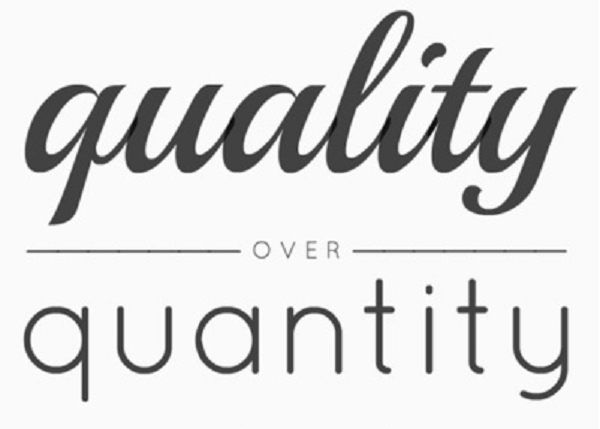The Economist ~ Notes on the developing alliance structures
 •
by
•
by Spite313

Dear friends,
In late 2013, when the TWO alliance was failing, I spent a lot of time talking to people about the problems in the alliance. Some were systemic, and fixable. Some weren’t. The biggest obstacle to any THREE alliance is of course the fact that although SPoland and Serbia being at peace is mutually advantageous, they disagree on so many issues it was an uncomfortable union. I felt then, and still feel now, that it is better for those two to part ways with respect rather than to let it degenerate into the usual childish trolling and accusations of backstabbing you get at the fall of an alliance.
Now even the most short-sighted player will realise that with new MPPs being signed between Poland, Spain, Turkey, Chile and Cro- amongst others- a new world alliance structure is forming. As someone with a small role in this, I’d like to comment on the logic behind it all. Starting at the beginning, PEACE and Phoenix were big sprawling alliances. ONE was a rebellion against that, with a small tightly knit alliance. TWO was similar, but larger and with many ACT nations. But the big problem throughout is that people didn’t realise that alliances aren’t about numbers on paper, they’re about numbers on the battlefield.
Toward the end of TWO, the alliance still had overwhelming numerical superiority, yet Slovenia was wiped off the map. How did that happen? Simply because half the alliance’s damage refused to fight for them. Even that wouldn’t have been enough to allow Cro victory, if not for the fact that Slovenia’s closest allies were distracted by their own battles and didn’t help. The key thing here is that an alliance which has efficient and obedient allocation of damage will always be stronger than a larger, less organised alliance. That is why EDEN beat ONE and it’s why TWO was crippled by the scattered remnants of EDEN time and again, despite controlling 70% of world damage.

When creating a new alliance the absolute priority is to make sure that never happens again. When picking allies, you have to think not just about their relationship with your country, but with all other countries in your “group”. It’s no good if they love you, but hate another country in your alliance. That isn’t a true alliance, it’s just a series of bilateral agreements. For that reason many countries are sitting on the sidelines and refusing to commit- there are people on both sides they don’t like.
To me that is the most sensible position to take for many countries at the minute. Trust must come before alliances are formed, or you are building your house on a foundation of sand, and when the wars come and you need to be at your strongest you’ll find that the damage on the battlefield does not meet up to your expectation. For that reason I believe that a good alliance should form around a small, intensely loyal core group, and that other countries should only be added if they are totally committed to all your members.
There has been a lot of talk about “licking” in the media (I’m assuming this is a European equivalent to what we’d call kissing arse), but for the most part I’ve avoided courting any country which isn’t committed one way or the other already. I just don’t think it’s worth seducing some country to your side only to find they were brought on board long before they were ready. The desperate grasping for damage merely leads to premature and shaky alliances which lack substance and strength.
As for which side is the best organised, I’ll leave the battlefields to do the talking on that one.
Iain



Comments
pertamaxxx~
good article. balanced and not very pretentious (as they tend to be).
Pole!!!
No pole 🙁
SPoland, UK, China, USA Vs Arg, Chile, Indo...
Hail Neutrality!
China isn't on Spoland's side 😛
V
V!
I do not understand that poster.
same here 😶
It aims to say that Economist readers are more intellectual than average reader. Clever way to praise the newspaper as well as its readers.
readers*
It's just, you know, those "less clever" wouldn't uderstand ; )
V
When picking allies, you have to think not just about their relationship with your country, but with all other countries in your “group”
Well good luck with eSpaind and eChile on one and eTurkey on other side.... x D
Those 3 in same alliance that is....
[removed]
Spain would be happy to fight for Chile and Turkey if they want it, i don't get your point...
eSpain and eChile working with Turkey...
Please don't make me laugh. It is really knows how much eSpain loves eTurkey which was shown in both past and present...
Always is pleasure reading your articles
o7
v + s
Thank you
Voted
V
o7
"rather than to let it degenerate into the usual childish trolling and accusations of backstabbing you get at the fall of an alliance."
Well, that already happened. Same with "accusations of licking" part.
Reason why I hate these transitions during formation of new alliances is because all that hate, insults and "trolling" come out on top and little to no respect is being shown for long-term allies.
Yep and I hate it even more when people on my "side" do it because I don't want to be associated with that. I have the greatest respect for former allies.
I agree Alex! Question I know Macedonia used to be allies with Serbia so with that said what do you call them FYROM or Macedonia? It relates to this situation and be honest 😛
I always called them FYROM because that is their official name.
I call them "Slav Macedonia", that's all.
Honestly, I tend not to use any name in public but to make it clear I'm referring to them (like now 😛 ) If I had to use name I'd use official ingame name.
But the real problem isn't name at all. It's claiming of history of the other country/defending its own history, depending on the perspective you look at it.
It's much more complex than you probably think because Serbs have friendly relations and many common things with both countries.
Huge majority of Serbs IRL use term "Macedonia", me included, for a number of reasons: We've been in same country with them for decades, there are no FYROS, FYROC or whatever so it would sound a bit stupid... and it's shorter after all. And I don't really think there's a proper equivalent of adjective "Fyromian" in Serbian language, or there is but it's rather hard to use it in a sentence and make it sound properly.
But that doesn't mean for a moment we don't know real history. We know how is it when someone else tries to take away your legacy, heritage or claim your territory. It's core of a problem, not name. That's why the same mentioned huge majority is on Greek side in that conflict.
I mean, I know real origin of my name after all.
P.S. As far as I know Serbia (talking about RL) officially recognized them as Republic of Macedonia but I still can see journalists (for example) using "FYROM" from time to time, even on national TV channels.
If the allies were chosen such that it offered tactical advantage to member nations, the friendship and trust factors would fall in place. Just looking at numbers, damage etc, instead of geography (especially with the new game rules) was I guess one of the reasons that also contributed to TWO's failure. And catering to egomaniacs is always meh.
Well actually the national "leaders" are usually more willing to kiss and make up in the name of pragmatism, but unfortunately it's the MU damage which counts not what politicians want. Listen to your people or you'll end up with a paper tiger alliance.
'Listen to your people or you'll end up with a paper tiger alliance.'
we going the paper tiger route again then?
ofc it is always a problem when there is a segregation between the military side and FA. However, people will listen to things presented objectively. But in many cases, the politicians act like know-it-all posh twats and the military guys act like tough jerks. Funny how it emulates RL behavior.
TWO ❤
woop woop
Nice Write up!!
V
Asgard sais hello 🙂
Why join CoT? http://www.erepublik.com/es/article/why-join-cot--2369688/1/20
"For that reason I believe that a good alliance should form around a small, intensely loyal core group, and that other countries should only be added if they are totally committed to all your members."
Welcome to Asgard, Iain.
But yeah, good article, voted.
I expect Greece read this. Thanks in advance.
"rather than to let it degenerate into the usual childish trolling and accusations of backstabbing you get at the fall of an alliance."
Are you serious? Polish CP who happened to be SG of TWO (which is against TWO constitution) disbanded the alliance with no discussion with other members, and had talks with other countries, enemy countries, for months before. I call that BACKSTABBING.
I'm sure you do, but nobody made any secret of the fact TWO was coming to an end. I actually said I thought it would end soon, in an interview for the Serbian Ministry of Information, back in October/November (can't remember which). Just some governments decided to cover that info up. It should have disbanded in jamesw's term.
Anyway I already said what I think about people who make those kind of accusations.
Well, I don't accuse anybody of anything. That is true by the very definition of the term. SG of an alliance and CP of allied country negotiates an alliance with the enemies. How is that not backstabbing?
Or betrayal, if you prefer that term.
Point is that TWO was dysfunctional for a long time and everyone knew it. If you want to call it betrayal when you leave an alliance fair enough, everyone is a traitor. Only after the alliance ended did negotiations begin, and it was month afterward when MPP was signed with "enemy" countries.
What annoys me about these things is how people have to re-write history to make their opponents into "bad guys" to make them feel like they're on the "right side". Both sides have flaws and made mistakes, but that period of history is over now.
Are you sure there were no shadow negotiations before the alliance was disbanded? My info says otherwise.
"Only after the alliance ended did negotiations begin, and it was month afterward when MPP was signed with "enemy" countries."
Even Magic said in Polish CP newspapers they had negotiated about new alliance for five months before TWO officially dissolved. And it was him who did that (dissolving) as a SG.
There were no (last) elections for alliance HQ, there was not even official article from TWO organization. Alliance that achieved that amount of success that TWO managed to at least deserved it.
But maybe someone "lost" login details for that org again, just like "some Spanish representatives" managed to do during summer 😛